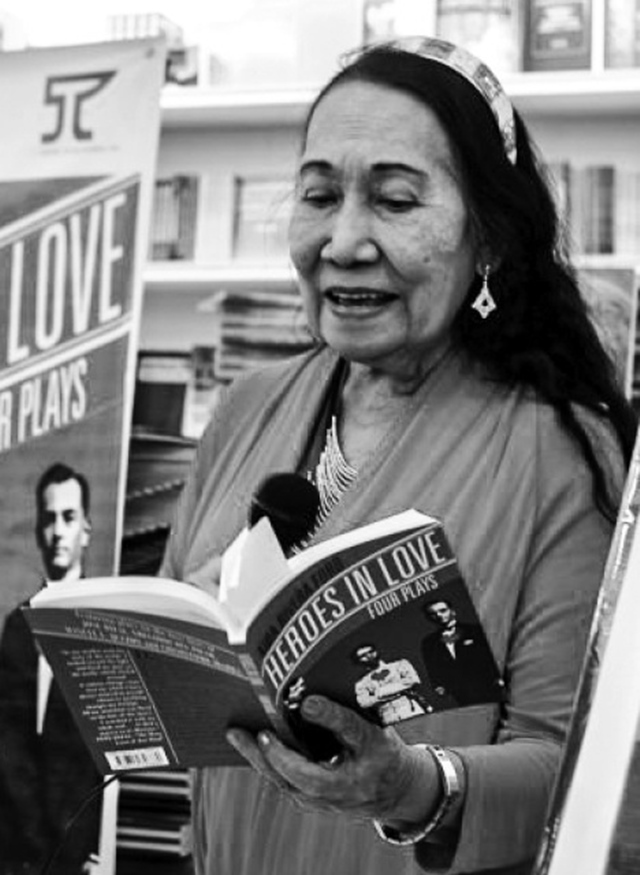
Virtuoso
She remains humble among the list of great Filipino writers. Her works are worth reading to any appreciation of the Philippine literature.
Presenting a wide array of stories from all the parts of the country and other short narratives, she is considered as one of the twentieth century intellectuals.
Her narratives are known to be warm and unmannered. The stories she tells are informational and serious yet reveals them with a sense of humor. Her characters allow the readers to walk and imagine what their world is.
Actively greeting her students in her school, Aida Rivera-Ford is not your ordinary school principal.
Aida Rivera Ford was born in January 29, 1929 to Judge Pablo Rivera and Lourdes Consunji in Jolo, Sulu. Their family crossed to the different parts of Luzon and Visayas before she settled in Mindanao.
“We have been transferring to different places because of my father’s work,” she said. Her father was assigned from Jolo to Dumaguete then transferred to Vigan where he was promoted from fiscal to judge.
She spent a few years of education in Vigan since they resided there for a long time.
“In my seventh grade, however, my father was assigned in Samar for three months and so I finished the last month of that grade level at Saint Paul Academy in Dumaguete,” says Rivera-Ford.
She graduated in Silliman University as a cum laude in Bachelor of Arts in English and was the first editor of Sands and Corals, the university’s literary journal.
“After I graduated in college, my application as a Fulbright scholar got accepted and earned my masters degree in English and Literature in University of Michigan in 1954,” she added.
She received the Jules and Avery Hopwood Award in fiction for “my five short stories that were published in 1955.” The stories were under the collection of “Now and at the Hour and Other Stories,” a compilation of 13 short narratives.
She was married in 1958 to Donald R. Ford, the former United States Information Service officer in Korea with whom he had a son named Jamie.
Rivera-Ford became a teacher in University of Mindanao then became the Humanities Division Chairperson of Ateneo de Davao University from 1969 to 1980.
After 11 years, she established Ford Academy of the Arts, the first Fine Arts school in Mindanao, together with Victorino Edades, one of the country’s national artists.
She was also honored by Davao City with Datu Bago Awards in 1982 for her different contributions in the cultural heritage. She also received a Parangal for Writers Awards from the Philippine government in 1984.
Rivera-Ford was a Gawad CCP awardee in 1991 for her essay in English and was honored by University of the Philippines-Institute of Creative Writing as a National Fellow for Fiction in 1993.
Now that she rarely writes stories, Aida dedicates her time in managing her school which she considers as her living legacy.
Aside from monitoring the campus, she still enjoys narrating stories to the people she knows. This shows that what she used to do when she was younger will forever remain in her heart and memory.
Despite her age, she still shows dedication and passion in everything she does and gives her heart out to her living legacy.
Truly, Ms. Aida Rivera-Ford is one of the best Mindanaons not just because of the awards she received, but also because of inspiring people through her artistic stories and living legacy. (Tiziana Celine Piatos)



No Comments